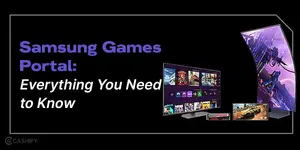It is impossible to go too far regarding iPhone security because we all keep a lot of personal information and sensitive data on our smartphones. Everything is saved on this compact device, from bank account apps to intimate conversations. Of course, lock screen apps can keep people out, but they are not enough. You must add an extra security layer on specific apps to safeguard your most sensitive data. However, for that, you must know how to lock iPhone apps using a password or touch ID. So no unauthorized person can access your smartphone. Locking iPhone apps adds one more barrier for hackers to get through and more peace to your mind.
This article explains step-by-step instructions on how to lock apps on iPhone using the password, touch ID, and more. So, without further ado, let’s get started.
Also Read: How To Use Remote Mouse App With Windows/Mac Computer
These Are Some Methods To Lock Apps On iPhone Or Restrict Them!
- Method 1: Using Face ID/ Touch ID
- Method 2: Using Screen Time Limits Feature
- Method 3: Using Guided Access
- Method 4: Using Third-Party Applications
- Method 5: Using Shortcuts
Now, let’s explore all the available methods to lock apps on iPhone in details for better understanding.
Also read: How To Add Emojis On Macbook And Windows?
Method 1: How To Lock Apps On iPhone Using Face ID Or Touch ID?
Using a FaceID or TouchID is the most secure way to lock an iPhone as it requires the respective passcode to open it. When app lock in iPhone is done via this method, the locked apps will not be visible in certain places like CarPlay, Siri suggestions, call history, etc. It will also not show notification previews.
Now, let’s look at the steps which you can follow:
- Open Settings on your device.
- Tap Face ID & Passcode.
- Enter your passcode.
- In the “Use Face ID For” section, turn on Face ID for each app you want to lock.
- Go to “Other Apps” and turn on Face ID for the apps you want to allow access to.
If you want to use touch ID, use the same method as mentioned, and it will get the job done.
Also Read: iPad Pro M4 vs iPad Pro M2: A Must Read Comparison!
Alternatively, you can follow these steps:
- Select the app you want to lock from the Home screen.
- Long press on the app icon until the ‘quick actions’ menu opens.
- Select Require Face ID (or Touch ID or Passcode)
- Create a new passcode or FaceID and authenticate.
Tip: Using Two-Factor Authentication On Selected Apps
Once you are aware how to lock apps on iPhone using the FaceID, you can try adding another layer of protection with the two-factor authentication. Here’s how to set up two-factor authentication (2FA) for selected apps on your iPhone:
- Open the Settings app on your iPhone.
- Tap on Passwords. Use Face ID or enter your passcode to proceed.
- You’ll see a list of saved passwords. Choose the website or app you want to set up 2FA for.
- Tap Set up Verification Code.
- Tap Enter Setup Key and enter the code you receive.
Before you proceed, please keep in mind. The two-factor authentication will change in every 30 seconds. This has to work only if you particular app supports such feature. People generally prefer using this feature for specific prime apps like digital money wallet or banking apps.
Method 2: How To Lock Apps On iPhone Using Screen Time Limits ( iOS 12 Or Later)
This feature on iPhone let’s you put a limitation on the amount of time you should be spending on that specific app. This is mostly useful for social media apps. But, it can also be used for locking out apps (indirectly). If you regularly have a specific time frame to use an app, you can set a limit.
What Happens After the Daily Screen Time Limit Has Crossed?
Once the daily time limit is reached, your apps stay locked, even if your phone is left unattended. They can only be accessed using your Screen Time passcode. This is one way to set up an app lock for iPhone.
Here are a few functions of the screen time limit:
| Function/Feature | Purpose |
|---|---|
| Start Screen Time With App Limits (No Passcode) | Use this feature to easily limit specific apps and customise time limits in hours or days. |
| Starting Screen Time Feature with Passcode | This feature will limit app usage time, prompting for a passcode once the limit is reached. |
| Adding Parental Restrictions | Used for child viewing safety |
Here’s how to lock apps on iPhone using app limits in screen time feature:
# Start Screen Time With App Limits (No Passcode)
- Go to the Phone’s Settings
- Scroll down to Screen Time. Tap on it
- Click on App Limits. On the next page, toggle it ON.
- Click on ‘Add Limits’. A list will open for the most used apps.
- Tap and tick the check box against the apps on the list for which you want to limit time. You can also choose ‘All Apps & Categories’ to limit all apps.
- Click on ‘Next‘.
- Set the time limit as you wish. For example, you chose the Games category. Then, you can set 2 hours or customise days.
Click on ‘Add‘.
This will add the app category to your screen-timed app list.
# Starting The Screen Time Feature With Passcode:
- Open phone’s Settings and find Screen Time. Tap on it.
- You will get the message for, Turn On Screen Time in the bottom. Click on it.
- Click on ‘Use Screen Time Passcode’ to create the passcode. It may appear as ‘Lock Screen Time Settings‘ in some devices.
After this, you would need further steps to lock apps individually by setting App Limit as we have mentioned in the previous step.
Also Read: How To Recall A Message Sent On WhatsApp: Undo Your Mistakes!
Important to note: Screen time only limits your app usage. Along with app limits, this feature also works like an app lock if you think of it. Once the usage limit has been reached (the one you set for the day), it will automatically lock the app until you enter the passcode again to use it for a longer time.
Once the predefined time limit is set, the app gets locked, and you can always extend the time limit by clicking on “Ask for More Time” and entering the passcode to disable the lock.
# Adding Parental Restrictions
Once, you have enabled your screen time limit, you can carry on the following steps:
- Choose “This is My [Device]” or “This is My Child’s [Device]” depending on your situation.
- Tap “Content & Privacy Restrictions”.
- Set up a passcode for Screen Time (different from your phone’s passcode). Remember this code, as you’ll need it to access locked apps. Retype the passcode for confirmation.
Also read: Instagram Status Download With 3 Free and Simple Methods!
You can also use the time limits feature introduced in iOS 12 to lock apps on the iPhone. Wondering how to lock apps on iPhone running in other iOS versions? Keep reading.
Method 3: How To Lock Apps On iPhone Using Guided Access
The most secure way to lock your apps is to use Guided Access. Guided Access prevents you from leaving the app you have opened. This is useful when you need to give your phone to someone else for a specific app but don’t want them to access anything else without permission.
Here is how to enable guided access to lock apps on iPhone:
- To enable Guided Access, head over to Settings and select Accessibility
- Now select Guided Access and enable the toggle.
- Now head over to Passcode Settings and set Guided Access Passcode.
Also read: 5 Best Poki Games You Can Play For Free
The lock apps on the iPhone guided access feature are pretty cool. It lets you lock your device to use a single particular app.
Here’s how it works:
- Start a Guided Access session: Open the app you want someone to use. Then, triple-click the side button (iPhone X and later) or the Home button (iPhone 8 and earlier).
- Customise access (optional): You can further restrict what the user can do within the app. For example, you can disable certain screen areas or buttons.
- Exit Guided Access: When you want to get your phone back, simply triple-click the side/Home button again and enter your passcode (if set).
Also Read: How To Share A Google Calendar: A Step-By-Step Guide!
Method 4: How To Lock Apps On iPhone Using Third-Party Applications
There is no official third-party app lock in iPhone that allows users to lock any app on the iPhone, unlike the many apps we have on Android. The best way is to install third-party apps such as BioLockdown, AppLocker, iProtect, BioProtect, and Locktopus. These apps are only supported on Jailbroken iPhones. We are not recommending using these apps or the whole process of jailbreaking the iPhone as it’s only for advanced users. But still, if you want, you can try these out.
If none of the methods mentioned above don’t work, then only third-party apps should be used. Make sure to use a strong password if you use these third-party apps. Let’s checkout a few of them.
BioLockdown
It is one of the best app locks for iPhones. This app offers you app and folder lock options. The app lets you configure the switches and settings and allows you to use TouchID for better protection. The USP of this app is that it comes with impressive features such as cloud synchronization, secure password generation, priority support, unlimited data storage, etc.
AppLocker
This app is a popular and secure lock app for iPhones. You can use it without jailbreaking. This app is ideal for iPhone 6s and later. This app lets you protect apps using touch ID, fingerprint ID, and password. Besides, AppLocker provides you with secure password generation, priority support, unlimited data storage, and automatic browser fill.
iProtect
iProtect is another popular app which protects your apps, folders, contacts, photos, and call history. The USP of this app is that you don’t need the internet to use this app. The impressive features of this app are cloud synchronization, notes addition, credentials sharing, and synchronization with all logged-in devices. The app offers touch ID and face ID support, along with a single-click quick login option.
Method 5: How To Lock Apps On iPhone Using Shortcuts (iOS 13 or Later)
Here’s one more method you can try when attempting app lock for iPhone. It is via the Shortcuts feature that is available in iOS 13 or later. Before you go ahead, know that this isn’t a foolproof solution. The reason being, iPhones don’t really lock the actual apps this way. You are creating shortcuts with passcodes that hide the real app and put a lock on the shortcut itself.
If that fits your needs, you can proceed with this simple process:
- Open the “Shortcuts” app and create a new shortcut.
- Name it after the app you want to “lock” (like “Secret Snapchat”).
- In the shortcut, add a step to “Ask for Input” (like a passcode).
- If the passcode is correct, add a step to “Open App” and choose the real app (like Snapchat). This creates a shortcut that looks like the app but requires a passcode to open the real app.
Remember, you’ll still need to hide the original app for this to work effectively. While this method still works, it is not as effective as the Screen time feature we had discussed earlier.
Hiding Apps On iPhones (iOS 11 or older)
For iPhones with iOS 11 or older, there isn’t a built-in app lock for iPhone. However, you can use Restrictions to hide apps from your home screen. If you are wondering how to lock apps on iPhone that is not the latest in the market, here are the steps:
- Open the Settings app and tap General.
- Scroll down and tap Restrictions.
- Tap Enable Restrictions and create a passcode (different from your phone’s unlock code). Remember this code, as you’ll need it to unhide apps later.
Here’s the catch: Restrictions can only hide Apple’s built-in apps, not downloaded ones.
- With Restrictions enabled, scroll down to the Allowed Apps section.
- To hide an app, tap the toggle switch next to the app name to turn it off (white). The app icon will go invisible from your home screen.
Important: To use them again, you’ll need to re-enable them in Restrictions. This might not be ideal for everyone.
Alternative:
- On the Home screen, find the app you want to long press on the app.
- Once the quick action menu opens, select ‘Hide and Require Face ID’.
- Create a passcode.
- Confirm to Hide App.
If you want to access the apps you have hidden in this method, go to Settings > Apps > Hidden Apps.
Frequently Asked Questions!
Q. Is there a way to lock a folder of apps on iPhone?
A: There is no way to lock the folder of apps. It is because iPhones don’t have any built-in feature to lock folders or file apps.
Q: How Do I Lock Apps On iPhone?
A: To know how to how to lock apps on iPhone, utilise the built-in Screen Time feature by going to Settings > Screen Time > Content and Privacy Restrictions. Another option is to set a passcode or FaceID for the respective app.
Q: Does iOS Have A Built-in App Lock Feature?
A: iOS doesn’t have dedicated system-level support for individually locking apps. However, you can use workarounds like Screen Time limits, Guided Access, or third-party apps to achieve similar functionality.
Q: Can I Lock First-party Apps On An iPhone?
A: Yes, you can restrict access to first-party apps on iPhone using Screen Time. Go to Settings > Screen Time > Content and Privacy Restrictions > Allowed Apps, then turn off toggles for the apps you want to lock.
Q. How to set app password in iPhone?
A: To set a password for apps on your iPhone, go to appleid.apple.com and Sign-In with you Apple ID. Move to Security section. Select App-Specific Passwords, then click Generate or Add and follow the on-screen instructions. Finally, enter the generated password into the app’s password field.
Q: Are There Third-party Apps To Lock Apps On iPhone?
A: While there are third-party apps like BioProtect, Locktopus, and AppLocker available for Jailbroken iPhones, they are not recommended due to the advanced nature of Jailbreaking. For non-jailbroken iPhones, workarounds like Screen Time and Guided Access are more secure options.
Q: Does iPhone Have Hidden Folder?
A: iPhone does not have a dedicated hidden folder feature, but you can hide your private photos and videos in the Photos app. You can head over to Photos and then select the photos the photo you wish to hide. Click on the three-dot menu and choose Hide to add your selection to the hidden album.
Q: How Do I Lock My Notes On My iPhone?
A: To lock a note and make it private, open the Notes app on your iPhone and choose the Note that you wish to lock. Press the More button, and you can create a unique password for the Notes app or use the iPhone Passcode.
Q: How Do I Lock WhatsApp On iPhone?
A: To protect your WhatsApp chat, open the app and head over to the Settings tab in the bottom right corner. Click on Privacy and choose the Screen Lock option. Here, you need to toggle the “Require Face ID/Require TouchID” toggle to ON and select the duration.
Q. How to lock settings on iPhone?
A: You can lock settings on iPhone by creating a new personal automation in the Shortcuts app. Select ‘settings app’ for automation and choose automation type.
Q. How do I lock apps on my iPhone without the screen time?
Here’s how you can lock apps on iPhone without the screen time:
- Open Settings> Face ID and Passcode.
- Now add your “Passcode” to get started.
- Select “Other Apps” to access the apps you wish to lock.
- Click on the toggle on the app you want to lock to insert the Face ID.
Q. What is kid mode on iPhone?
Kid mode on iPhone restricts the kids from using the phone. In this mode, you can prevent the kids from pressing the home button, changing the volume, and setting a time limit. To set up guided mode, open Settings> General> Accessibility> Guide Access.
Concluding Remarks
Everyone has the right to privacy, but you must know how to lock iPhone apps to maintain it. iPhone doesn’t have any built-in feature to lock apps. However, you can secure apps through passwords, Touch ID, Face ID, screen time limits, guided access, and third-party apps. You can keep your information private using these apps.
Hopefully, the above discussion helped you choose the best methods to lock your app and secure your data. If you still have any queries or need any help, you can ask us in the comment section below.
Did you know that refurbished mobile phones cost almost 50 per cent less than new phones on Cashify? You also get other discounts, No-cost EMI and more, making it the most affordable way to buy a premium phone. So, what are you waiting for? Buy refurbished mobile phones at your nearest cashify store and avail exclusive offers.
















